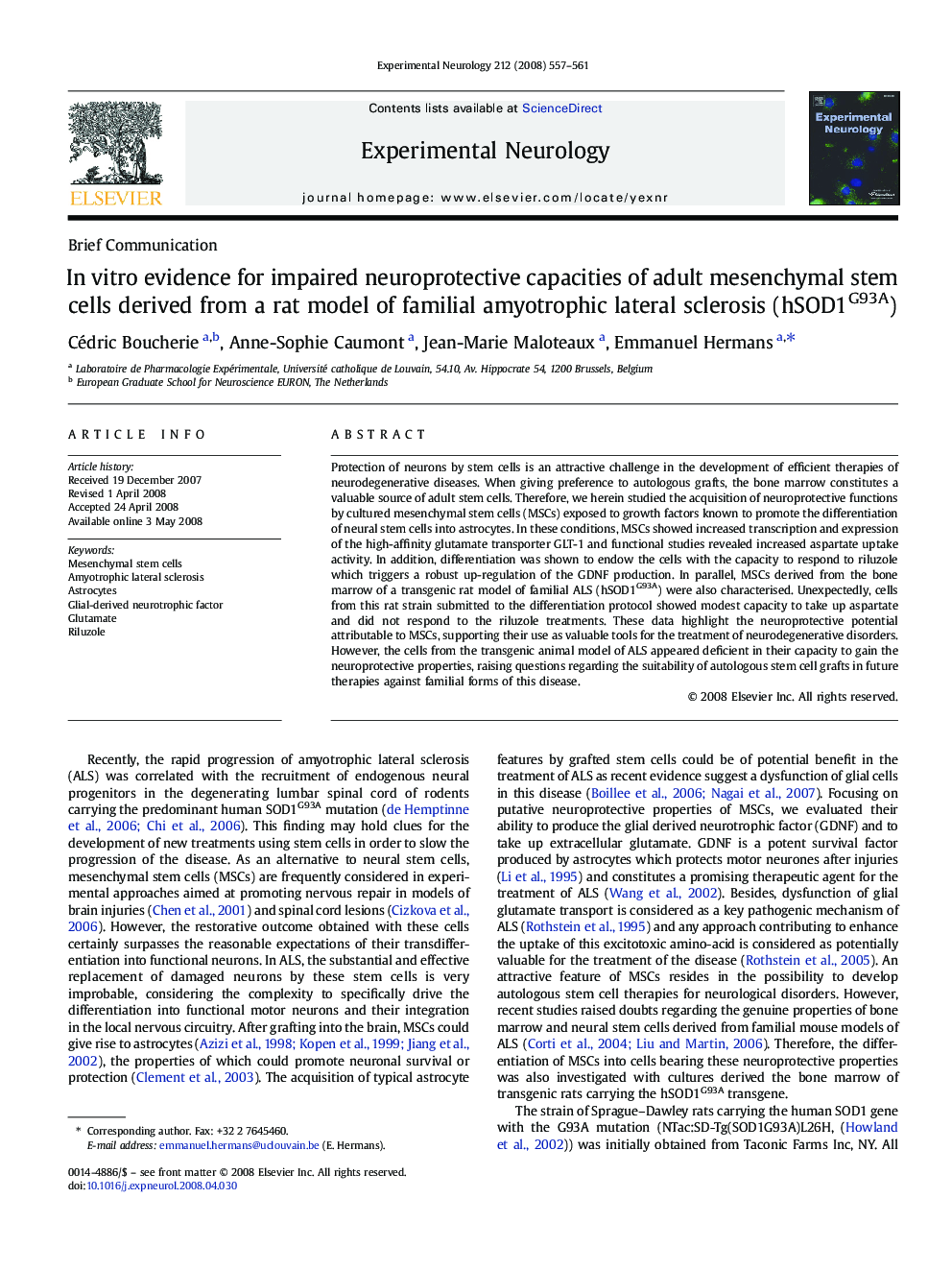| Article ID | Journal | Published Year | Pages | File Type |
|---|---|---|---|---|
| 3056584 | Experimental Neurology | 2008 | 5 Pages |
Protection of neurons by stem cells is an attractive challenge in the development of efficient therapies of neurodegenerative diseases. When giving preference to autologous grafts, the bone marrow constitutes a valuable source of adult stem cells. Therefore, we herein studied the acquisition of neuroprotective functions by cultured mesenchymal stem cells (MSCs) exposed to growth factors known to promote the differentiation of neural stem cells into astrocytes. In these conditions, MSCs showed increased transcription and expression of the high-affinity glutamate transporter GLT-1 and functional studies revealed increased aspartate uptake activity. In addition, differentiation was shown to endow the cells with the capacity to respond to riluzole which triggers a robust up-regulation of the GDNF production. In parallel, MSCs derived from the bone marrow of a transgenic rat model of familial ALS (hSOD1G93A) were also characterised. Unexpectedly, cells from this rat strain submitted to the differentiation protocol showed modest capacity to take up aspartate and did not respond to the riluzole treatments. These data highlight the neuroprotective potential attributable to MSCs, supporting their use as valuable tools for the treatment of neurodegenerative disorders. However, the cells from the transgenic animal model of ALS appeared deficient in their capacity to gain the neuroprotective properties, raising questions regarding the suitability of autologous stem cell grafts in future therapies against familial forms of this disease.
